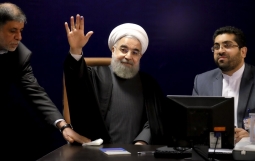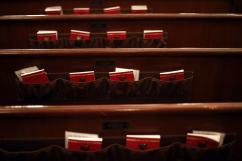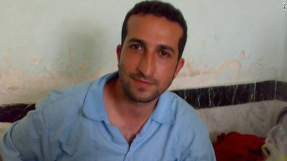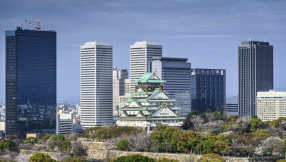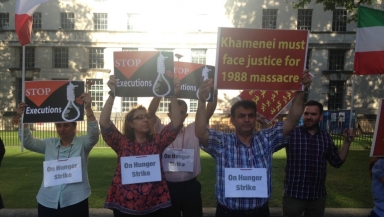
Twenty Iranians have today entered their third day of a hunger strike in protest against what they say are brutal violations of human rights laws by their country's government.
The protestors, who are camping outside Downing Street in London, have been joined by hundreds of others during the weekend in solidarity with the victims of recent mass executions in Iran.
Last week, up to 20 Sunni Kurds were hanged by the Iranian regime for alleged terrorism offences. Human rights groups have condemned the killings, and claimed that the convictions may have been based on forced confessions.
The UN High Commissioner for Human Rights, Zeid Ra'ad Al Hussein, branded the executions "a grave injustice" and said there were "serious doubts about the fairness of the trials, respect for due process and other rights of the accused".
Speaking to Christian Today, Hossein Abedini, the UK spokesperson for the National Council of Resistance of Iran (NCRI) – a coalition of Iranian opposition political organisations functioning as a parliament in exile – also strongly condemned the executions and urged the UK to hold Iran to account.
Under President Hassan Rouhani, who has presented himself as a 'moderate', human rights violations have rapidly deteriorated, Abedini said. In total, around 120,000 people are believed to have been executed since 1981 for their political or religious beliefs, and the figure has escalated since Rouhani became president. Abedini insisted that the UK's relative silence on Iran's human rights record is "shameful".
"Things have deteriorated and worsened as far as human rights are concerned. There have been 2,500 hangings [since Rouhani came to power in 2013], many juveniles and women have been executed, and religious minorities, especially Christians, are suffering in Iran very badly... There is no freedom for religious minorities; they cannot practice their religion [and they suffer] very brutal and cruel human rights violations," he said.
Iran is ranked ninth on persecution charity Open Door's list of countries where it's most dangerous to be a Christian. Open churches are forbidden, and converting from Islam – the state religion – to Christianity is punishable by death for men, and life imprisonment for women. Last year, more than 100 Christians were arrested or imprisoned, and reports of their torture have emerged.
More widely, Iran has a long history of human rights abuses and violence is rapidly escalating across the country, facilitated by laws which allow the legal persecution of minority communities such as Christians and Baha'i Muslims, who have been condemned by Iranian authorities as an "illegal cult".
"There is no religious freedom in Iran," said Abedini, noting the plight of Saeed Abedini – an Iranian-born US pastor who was released in January after being held in Iran's notorious Evin prison for years – and Maryam Naghash Zargaran, a Christian convert from Islam who remains incarcerated and is said to be in very poor health.
Human rights abuses are not the only concern of campaigners – another is Iran's persistent efforts to acquire nuclear capability – but they are the most prominent.
"The regime itself is the most ungodly regime," Abedini said. Rouhani in 2014 described executions under his rule as the fulfilment of "God's commandments", but Abedini said the majority of Muslims want to distance the brutal punishments from true Islam.
"We believe this is only a fundamentalist regime carrying out [executions] in the name of God and in the name of religion," he said. 'Islam is a religion of compassion and mercy.... [The executions are] absolutely abhorrent, and have got nothing to do with true Islam."
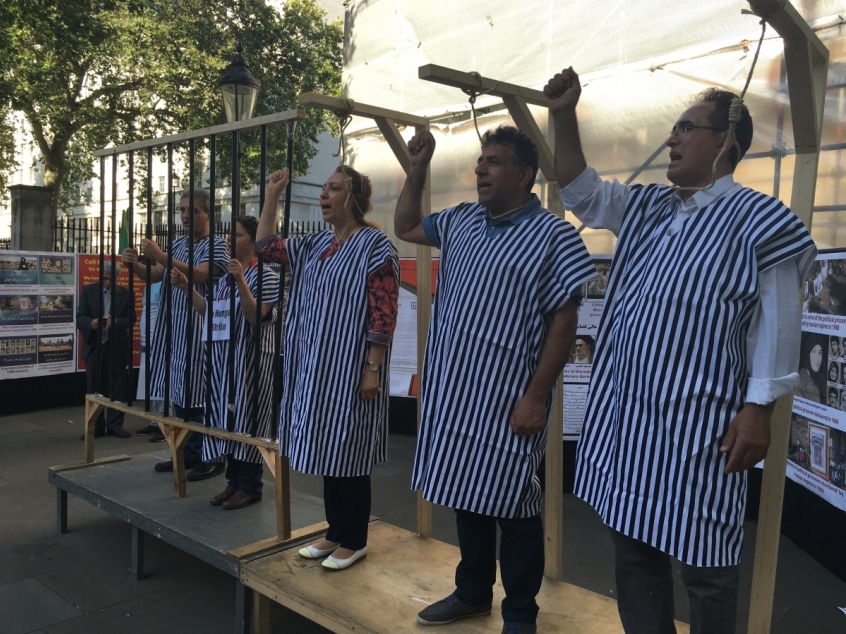
The protest in London falls on the anniversary of the 1988 executions of political prisoners in Iran, during which Amnesty International has documented the disappearance of more than 4,400 prisoners, though opposition groups say as many as 30,000 were killed. Those striking are calling on the British government not only to hold Iran to account for its wider human rights violations, but also to recognise and condemn this massacre, which the regime denies having taken place.
Omid Ebrahimi, 18, is taking part in the hunger strike along with his father, who was held as a political prisoner in Iran for a decade between 1981 and 1991. Several members of his mother's family were also executed during this time.
"For us, this was one of the darkest days in the history of human beings," Ebrahimi told Christian Today. "And for this, we call upon all western governments, and in particular the British government, to condemn the massacre."
Ebrahimi was insistent that the human rights situation in Iran remains as volatile as it was in the 1980s under then-Supreme Leader Ruhollah Khomeini. "The regime hasn't changed at all," he said. Religious minorities are under particular threat, he added, and almost anyone is at risk of accusations of being against the regime.
"This can only be solved one way, and that's a regime change," Ebrahimi said.
His fellow protestors have received some parliamentary support already. Conservative MP Matthew Offord sent a message offering his "best wishes" to those on hunger strike, adding that "the mass execution of Sunni political prisoners is deeply disturbing".
Offord joined a number of political and church leaders at the NCRI's annual conference in Paris last month.
In a statement released ahead of the conference, four bishops and others issued a joint statement setting out their "grave concern" at Iran's human rights situation.
They said: "Repression of Christians has not only continued but intensified during the presidency of Hassan Rouhani.
"In such circumstances, we call on all Western countries to consider the deplorable situation of human rights in Iran, particularly the painful situation of Christians and the intensification of their oppression, in navigating their relations with Iran.
"We call upon them to precondition improvement of those relations on the cessation of oppression of Christians and on a halt in executions."










